SUMMARY
This is AI generated summarization, which may have errors. For context, always refer to the full article.
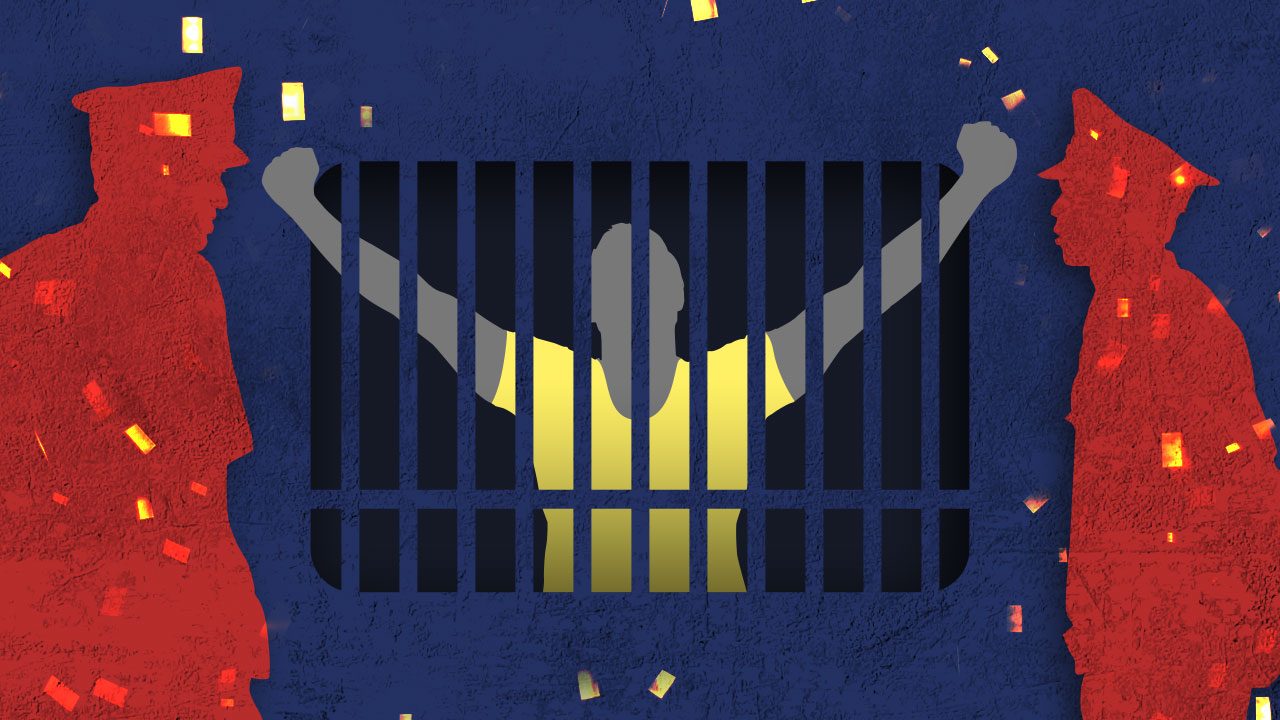
MANILA, Philippines – Benedict*, not his real name, won as barangay kagawad (councilman) in the recently concluded barangay and Sangguniang Kabataan elections (BSKE) even without personally campaigning.
He did not bother making personal appearances during the brief campaign period, not because of medical limitations, but because he remains behind bars. Benedict is one of the eight prisoners who ran in the last polls while detained – two for barangay chairperson and six for kagawad.
In an interview with Rappler, through the Bureau of Jail Management and Penology’s (BJMP) e-Dalaw program, Benedict shared his experience in the last elections. The BJMP’s e-Dalaw program allows persons deprived of liberty (PDL) to communicate with their visitors, most often loved ones, through online platforms.
Benedict told Rappler that this was his third time being elected as barangay kagawad in their village in Dasmariñas City, Cavite. Based on reports, he was arrested in 2019 while in office, so he has been a public official for almost four years while detained.
He said he did not hold any other elected position in the past, aside from his current post. Since he is currently detained in Dasmariñas City Jail Male Dormitory, his daughter processed his candidacy on his behalf.
“Kailangan magtanong muna siya sa akin kasi anak ko ‘yon. Kung anuman ang gagawin nila sa barangay, eh ‘di dapat ipaalam niya muna sa ‘kin. Itawag niya muna sa ‘kin (She needs to ask me first because she’s my daughter. Whatever they do in the barangay, she would have to tell me first. She needs to consult me first),” Benedict explained to Rappler.
Benedict had doubts he would win for his last term since he could not personally campaign. “Lalo na, sir, ‘yung pangamba na, siyempre, wala tayo sa [ground], kunwari, hindi natin inano na mananalo tayo. Kaya napakalaking pasasalamat sa mga taumbayan, lalo na sa pamilya ko, dahil kung [wala] sila, hindi ako mananalo.”
(I worried especially because of course, since I’m not on the ground, I did not expect that I would win. That’s why I’m really thankful to my constituents, especially to my family, because without them, I would not have won.)
Benedict said he was extremely happy when he learned about his victory. He only found out that he won on Tuesday, October 31, after his family called him, since the manual counting in their village was not yet completed on the actual day of the polls.
The detained barangay kagawad explained that he was really immersed in their community and he helped his neighbors, even before being elected in office. “Kung anuman ang problema sa aming barangay, kahit hindi pa ako naging kagawad, tumutulong po ako, sir.” (Whatever the problem was in our barangay, even if I was not yet a kagawad, I always helped)
Benedict is only one of the three PDLs under the BJMP’s custody who won in the latest polls while detained. According to the Commission on Elections (Comelec), there are two other PDLs who secured seats in the last BSKE:
- Kagawad, Barangay Kay-Buto, Tanay, Rizal (Detained at Tanay Municipal Jail)
- Kagawad, Barangay Iponan, Cagayan de Oro City (Detained at Cagayan de Oro City Jail Male Dormitory)

Yes, PDLs can run in polls
Based on rules, PDLs who are not yet convicted for their alleged crimes can still run and win in elections.
In fact, former senator Antonio Trillanes IV filed his candidacy and won a Senate seat while under detention in 2007. On May 14, 2007, Trillanes ranked 11th in the Senate polls with over 11 million votes and was proclaimed senator-elect the day after. (READ: TIMELINE: Trillanes, from mutiny to amnesty)
Under section 12 of the Omnibus Election Code, only a person who has been declared by competent authority as “insane or incompetent, or has been sentenced by final judgment for subversion, insurrection, rebellion or for any offense for which he has been sentenced to a penalty of more than eighteen months or for a crime involving moral turpitude,” is disqualified from being a candidate or holding any public office.
A convicted person who fits into any of these can only run if given plenary pardon or granted amnesty. This was also recently reiterated by Comelec Chairman George Garcia on Monday, October 30.
Garcia, however, said that PDLs who are elected can only fully perform their duties once they are acquitted or cleared of their charges: “Habang sila po ay nakakulong, eh siyempre ‘di naman sila puwedeng mag-dispose ng kanilang powers and functions. Kaya lang, kung sakaling sila’y makakalaya later or kung saka-sakali mang maabsuwelto sila sa mga kasong kanilang kinahaharap saka pa magtutuloy-tuloy ‘yong kanilang panunungkulan.”
(While they are detained, of course they cannot dispose of their powers and functions. In the event that they are freed or be cleared of their cases later, that’s when they can continue service in office.)
In case the PDL is elected barangay chairman, the rule on succession will apply. In government, rule of succession means the next in line will replace the elected official who is unable to serve.
“Meron naman po tayong rule on succession na nakalagay po sa ating local government, in which case kung ‘yun pong barangay chairman ang nawala sa puwesto and then therefore, ang barangay kagawad naman ang mag-a-assume in acting capacity,” Garcia explained.
(We have a rule on succession in our local government, in which case, the barangay kagawad assumes in an acting capacity, if the barangay chairman is unable to serve.)
In addition, Garcia told Rappler that proxies or representatives of the elected PDLs are not allowed to perform their duties on their behalf, and at most, PDLs can ask courts to allow them to participate in barangay council sessions virtually.
BJMP spokesperson Jail Chief Inspector Jayrex Bustinera, in an interview with Rappler, also reiterated that elected PDLs can only function with limitations.
“Of course, ang physical attendance is limited, kasi nga po kailangan ng court order, if kailangan ng attendance sa isang pag-perform ng kanyang duty. At, hindi din naman po kami papayag, ang BJMP, na lumabas lang siya basta-basta na walang court order,” Bustinera told Rappler.
(Of course, physical attendance is limited because a court order is needed, if attendance is needed to perform their duty. And of course, the BJMP will not allow these PDLs to just leave detention centers without an appropriate court order.)

Voting, campaigning
If PDLs can run in elections, they can vote, too.
Detainees can vote as Comelec Resolution No. 9371 made this possible. The resolution even allows those convicted of crimes involving disloyalty to the government to vote, provided their conviction is on appeal.
This year’s BSKE is historic for PDLs because they were able to vote after 10 years. A total of 29,171 PDLs were allowed to vote nationwide. The last time they voted was during the 2013 midterm elections.
Their voting was temporarily stopped when a temporary restraining order (TRO) was issued after a petition was filed seeking to declare the Comelec resolution unconstitutional. In 2012, lawyer Victor Aguinaldo filed the petition that questioned the validity of the Comelec resolution because, according to him, it failed to provide its own implementing rules and regulations.
Aguinaldo even said that the Comelec rule did not go through public consultations, and that it violated the equal protection of laws by favoring PDL voters over other types of voters.
Ten years later, the TRO was lifted in 2022 when the Supreme Court (SC) unanimously dismissed Aguinaldo’s petition. The High Court, in its August 26 resolution, said the petition against the Comelec rule failed to present an actual case that would need judicial review.
“Petitioner had not shown any such circumstances. Absent a clear showing of a diminished right for which petitioner will suffer because of the implementation of the assailed Comelec resolution, it cannot be said that a conflict of legal rights exists. On this score alone, the instant petition is already dismissible,” the SC said.
Meanwhile, campaign rules allow the family members of PDLs to campaign on their behalf, like in Benedict’s case. This is also what Trillanes did in 2007 – he campaigned while detained.
Bustinera said that as part of their campaign strategy, PDLs can record themselves while under detention, as long as they seek permission. – with a report from Herbie Gomez; research from Kae Kristel Muñoz, Marie Flor Cabarrubias, and Vince Therese Turqueza/Rappler.com
Kae Kristel Muñoz, Marie Flor Cabarrubias, and Vince Therese Turquez are Rappler interns. Learn more about Rappler’s internship program here.
*Benedict’s real name was withheld for privacy.
Add a comment
How does this make you feel?
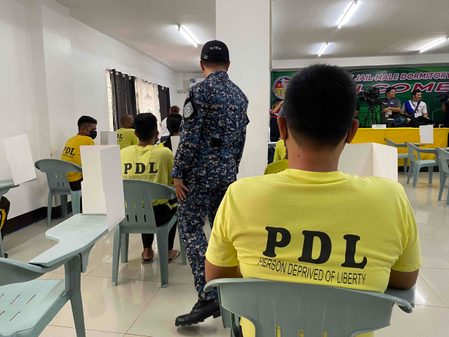

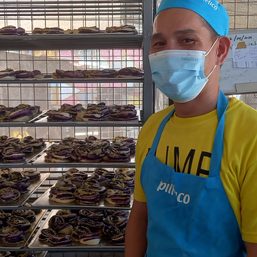
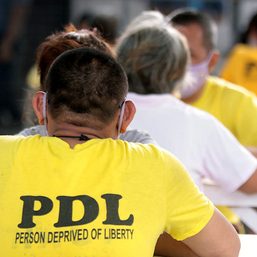
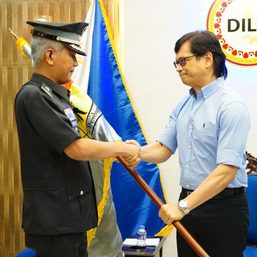
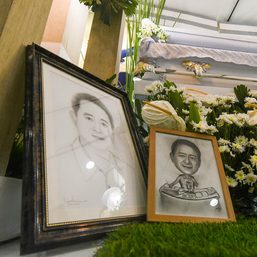

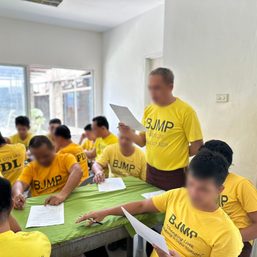
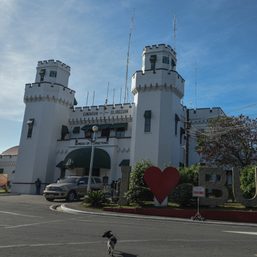
![[Rappler Investigates] The guns of Apollo Quiboloy](https://www.rappler.com/tachyon/2024/04/quibs-guns-carousel.jpg?resize=257%2C257&crop=412px%2C0px%2C1280px%2C1280px)
There are no comments yet. Add your comment to start the conversation.